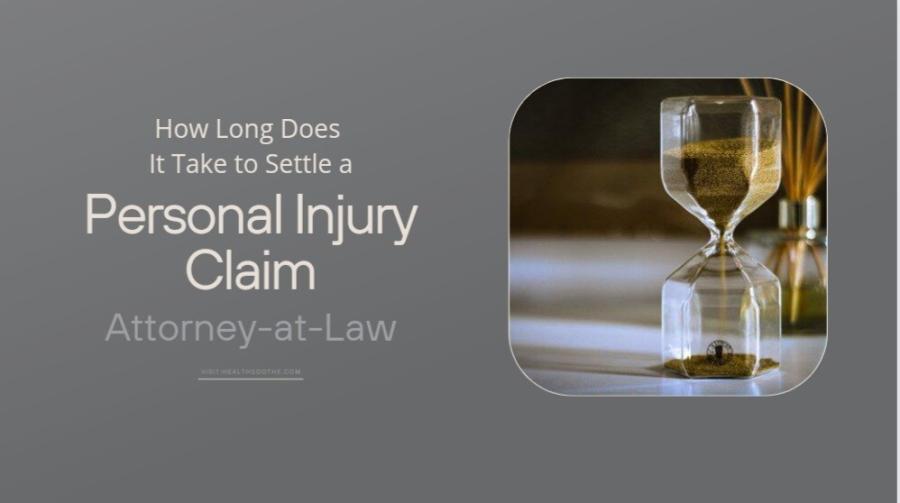When it comes to the realm of personal injury law, misconceptions abound. These misconceptions can deter individuals from seeking rightful compensation or misguide them during the legal process. In a bustling city like Houston, where accidents are not uncommon, it becomes all the more essential to debunk these myths. Let's unravel some of the most common misconceptions surrounding personal injury claims.
All Injuries Lead to Compensation
A prevailing misconception in the realm of personal injury claims is the belief that any injury, regardless of its circumstances, will automatically result in compensation. In reality, a successful personal injury claim hinges on demonstrating that another party's negligence or intent directly caused the injury. Simply being injured does not guarantee a financial payout. The legal process requires a thorough investigation to establish a clear link between the injury and the responsible party's actions. Therefore, individuals must understand that not all injuries will lead to compensation, emphasizing the importance of consulting with a legal professional to assess the viability of a claim.
Lawyers Always Push for Lawsuits
A common misconception is the belief that personal injury attorneys always advocate for lawsuits and court battles as the primary solution for resolving a case. However, the reality is that most personal injury cases are settled outside of the courtroom. Attorneys approach each case individually, carefully evaluating the circumstances and evidence to determine the most suitable action. Litigation can be a protracted and costly process, and attorneys often prioritize the best interests of their clients. Consequently, they may recommend alternative resolution methods, such as negotiations or mediation, to achieve a favorable outcome without the need for a lawsuit.
Minor Injuries Aren't Worth the Claim
Another misconception is the belief that minor injuries are not worth pursuing a personal injury claim. Some individuals may perceive minor injuries as inconsequential and may not consider them worthy of the legal process. However, even seemingly minor injuries can have significant repercussions, including medical expenses, lost wages, and potential long-term health issues. In densely populated cities like Houston, where medical costs can quickly accumulate, seeking compensation for even minor injuries can be crucial.
Additionally, it's essential to recognize that the impact of an injury extends beyond its immediate physical manifestations. Emotional and psychological trauma, such as anxiety, post-traumatic stress, or mental anguish, can also result from accidents and may be eligible for compensation.
I Can File a Claim Anytime
A prevalent misconception is that there is no rush to file a personal injury claim, and individuals may assume they have an indefinite time frame to initiate legal proceedings. However, the reality is quite different, as legal statutes of limitations dictate specific deadlines for filing claims. These statutes vary by jurisdiction and the type of case but typically require individuals to take prompt action. Failing to adhere to these deadlines can result in the forfeiture of the right to pursue a claim, regardless of its merits.
Individuals must understand the applicable statutes of limitations in their jurisdiction and the specific type of personal injury claim they wish to pursue. These legal deadlines serve several purposes, including ensuring the preservation of evidence, facilitating timely investigations, and promoting the efficient resolution of legal disputes. Therefore, prompt action is essential to protect one's legal rights and maximize the potential for a successful claim. Consulting with an experienced personal injury attorney is advisable to navigate these critical time constraints effectively.
Insurance Companies Always Offer Fair Settlements
A common misconception is the assumption that insurance companies consistently offer fair and just settlements to claimants. While insurance companies play a crucial role in compensating for personal injury claims, their primary objective is often to minimize payouts and protect their financial interests. Consequently, individuals may be presented with initial settlement offers that do not accurately reflect the full extent of their damages and losses.
Accepting the first settlement offer without legal consultation can result in receiving far less compensation than what is genuinely deserved. Personal injury attorneys are skilled negotiators who can assess the fairness of settlement offers, advocate on behalf of their clients, and pursue the maximum compensation available.
The Process is Always Lengthy and Expensive
A misconception about personal injury claims is the belief that the legal process is uniformly lengthy and expensive. While some cases may indeed involve extended proceedings, many personal injury claims are resolved relatively swiftly, particularly when there is clear evidence of negligence or liability. The duration and cost of a personal injury case can vary significantly based on factors such as the case's complexity, the parties' willingness to negotiate, and the court's docket.
The world of personal injury claims is rife with misconceptions. However, by understanding the nuances of personal injury law and seeking expert guidance, especially in cities like Houston with a dense legal landscape, individuals can confidently navigate the process and seek the justice they deserve.

Isreal olabanji a dental assistant and public health professionals and has years of experience in assisting the dentist with all sorts of dental issues.
We regularly post timely and trustworthy medical information and news on Fitness, Dental care, Recipes, Child health, obstetrics, and more.
The content is intended to augment, not replace, information provided by your clinician. It is not intended nor implied to be a substitute for professional medical advice. Reading this information does not create or replace a doctor-patient relationship or consultation. If required, please contact your doctor or other health care provider to assist you to interpret any of this information, or in applying the information to your individual needs.




